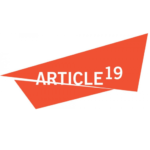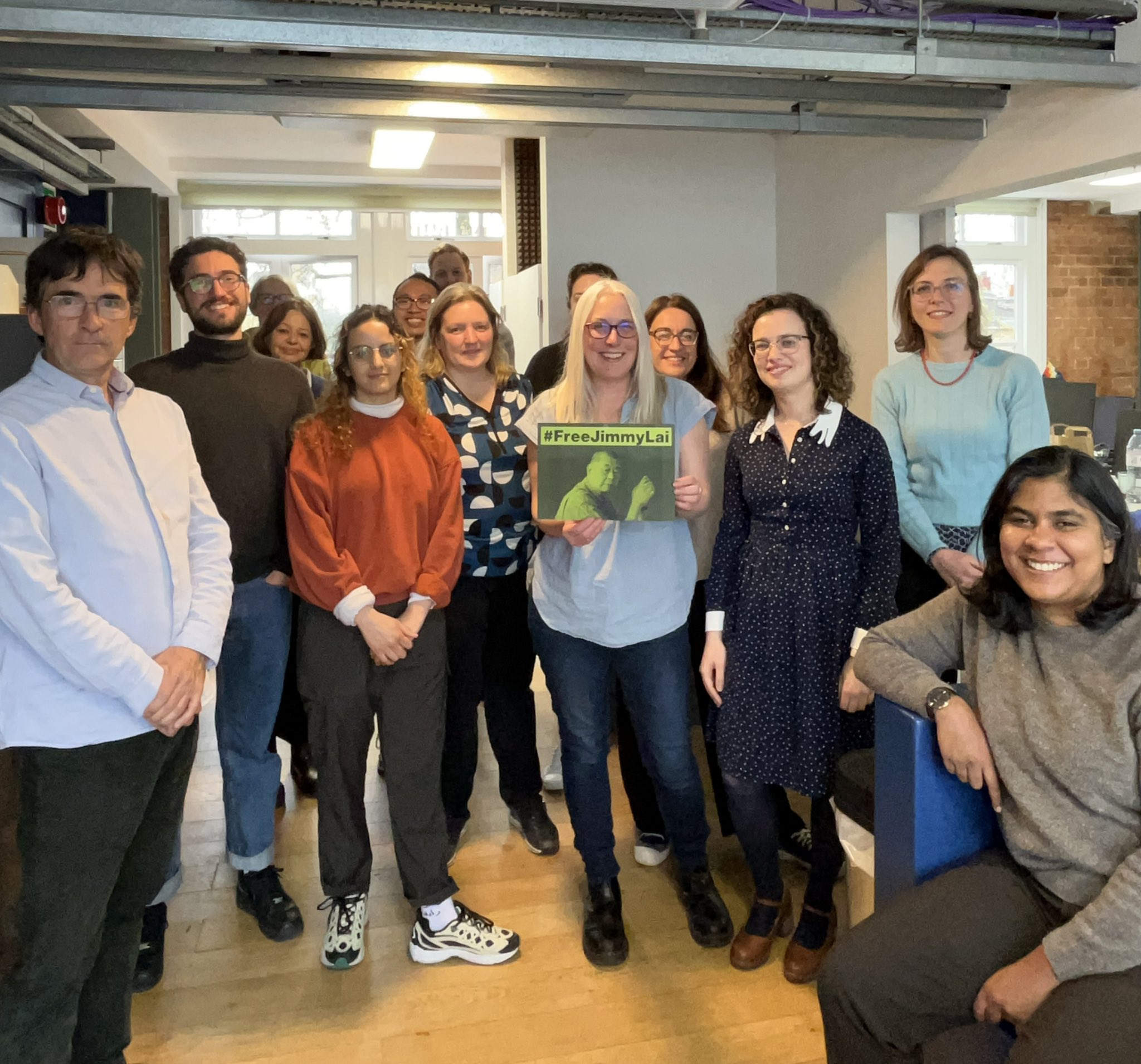Member in the Spotlight: ARTICLE 19
ARTICLE 19 is an international ‘think-do’ organisation that propels the freedom of expression movement, locally and globally, so people everywhere can realise the power of their voices. It works for a world where everyone can freely express themselves and actively engage in public life without fear of discrimination.
This is the 24th article of the series “EDRi member in the Spotlight“, in which our members have the opportunity to present themselves and their work in depth.
Today we get to know more about the ARTICLE 19.

ARTICLE 19 Q&A
-
-
Who are you and what is your organization’s goal and mission?
ARTICLE 19 is an international ‘think-do’ organisation that propels the freedom of expression movement, locally and globally, so people everywhere can realise the power of their voices. We are working for a world where everyone can freely express themselves and actively engage in public life without fear of discrimination.
Our work is focused around:
- Defining a new internet era: one which respects freedom of expression and reflects the diversity of human experience
- Protecting, empowering and connecting voices of those who are systematically discriminated against
- Advancing law and policy to strengthen and protect freedom of expression
-
How did it all begin, and how did your organisation develop its work?
ARTICLE 19, named after Article 19 of the Universal Declaration of Human Rights, was founded in 1987 ‘to document censorship, to defeat the censors, and to help the censored’. Our first international campaign launched in 1989, following the fatwa issued by the Iranian leader Ayatollah Khomeini against author Salman Rushdie – condemning him to death for alleged blasphemy in his novel The Satanic Verses. We formed the International Committee for Defence of Salamn Rushdie, to campaign for the author’s protection.
Since then, we have been developing our work with nine regional hubs across the globe, successfully campaigning for freedom of journalists and human rights defenders, shaping countries’ constitutions, ensuring the right to information is enshrined in national laws and monitoring the state of free expression globally.
Today, ARTICLE 19 is an established leader pioneering the promotion and protection of freedom of expression online and the integration of human rights in the design, development and deployment of the infrastructure of the internet.
-

The biggest opportunity created by advancements in information and communication technology is…
… how the internet became a platform for those whose voices have been silenced or marginalised in the past to exercise their freedom of expression.
-
The biggest threat created by advancements in information and communication technology is…
On the one hand, it’s the governments around the world being increasingly emboldened to use technology to stifle free expression, either through shutting down access to the internet or through legislation which silences dissent, often under the pretence of protecting national security or combatting disinformation.
On the other, it’s the enormous concentration of power in the hands of a few tech companies, and the lack of transparency around how some of those companies operate – which, too often, emboldens them to disregard human rights.
-
Which are the biggest victories/successes/achievements of your organisation?
Looking at the digital rights space, in the past few years, our work on platform regulation has spearheaded the global conversation around how we can use pro-competition tools and policies to tame the excessive power of the biggest social media companies and protect and strengthen freedom of expression online.
Since 2014, we have built pioneering work on embedding human rights considerations in several technical communities. Our successes include introducing human rights considerations in foundational documents of the Internet Corporation for Assigned Names and Numbers (ICANN), Internet Engineering Task Force (IETF) and the Institute for Electrical and Electronics Engineers (IEEE), as well as the establishment of human rights advisory groups in these key technical and standard setting bodies.
We have also developed cutting-edge research that builds evidence of how repressive regimes are using new, data intensive technologies to normalise mass surveillance, and silence expression and civic activism in the majority world. Among others, our research focused on the procurement and use of CCTV cameras in post-coup Myanmar and the growing market for emotion recognition technology in China. We were able to use this research in our advocacy with the European Union, illustrating the pressing need to ban the use of mass biometric surveillance and emotion recognition technologies in the upcoming EU AI Act.
-
If your organisation could now change one thing in your country, what would that be?
Globally, our ask would be for states to recognise the importance of open, free and secure internet, refrain from using their powers to restrict people’s access to it, and take proactive measures to ensure that the digital space, from social media platforms to internet infrastructure and new technologies, is regulated in a way that respects rights and enhances people’s ability to freely express themselves.
-
What is the biggest challenge your organisation is currently facing in your country?
Freedom of expression continues to decline around the world: according to our latest Global Expression Report, 80% of the world’s population live with less freedom of expression than they did a decade ago.
In the past year, we’ve seen crises of freedom of expression everywhere. Governments around the world are increasingly willing to pass bad regulations in the name of safety online. Russia continues to spur the propaganda of war, censorship and disinformation, as we enter a second year of the brutal war in Ukraine. The pillars of democracy are cracking in Tunisia.
Our biggest collective challenge, and opportunity, is how to make freedom of expression ‘everyone’s business’, to show how essential it is for the enjoyment and protection of all human rights – so that people around the world continue to raise their voices to demand change.
-
How can one get in touch with you if they want to help as a volunteer, or donate to support your work?
We have a monthly Inside Expression newsletter that you can sign up to here. If you’d like to support our work, you can make a one-off donation via our donations page. All the information about our work and campaigns can be found on our website: www.article19.org
-
Discover more about ARTICLE 19




